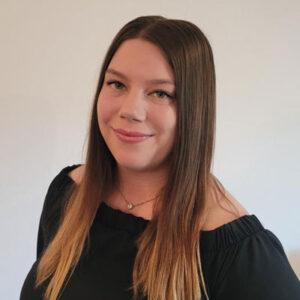We want to welcome Laura Hiebing to the role of the Indigenous Student Services Coordinator in the Academic Coaching and Tutoring Services unit.

Laura brings a wealth of knowledge and experience working with Native American Students through tribal, K-12, and college setting, experience teaching undergraduate and graduate students, and studying the Indian Child Welfare Act and Social Work Practice with American Indian Communities. She has worked in various settings and capacities to provide support services to students and clients of many diverse backgrounds.
Laura is a lifelong Madison resident who received her bachelor’s degree in Social Work with a certificate in American Indian Studies and master’s in Social Work from UW-Madison.
With established relationships across campus as well as with the broader Madison and Wisconsin Native American communities, she will provide culturally relevant academic and personal support services to help Native American/American Indian scholars achieve academic excellence. She also will help them to navigate campus and identify campus resources and opportunities within the DDEEA and UW-Madison community.
Among her first outreach activities will be taking a lead role in creating a survey to collect more information on the needs of current Indigenous students on campus, Laura said.
“I will be working to connect with students personally (virtual or in person) to gather responses as well as through an online survey,” she said. “It is important to note that Indigenous people are extremely diverse both culturally and in terms of circumstances and factors that can impact their experience on campus.”
From her personal experiences of working with Indigenous students, Laura has already identified some existing challenges, including:
Not feeling that they have a sense of community on campus with peers and with staff/faculty or mentors.
“Our campus does have a number of community spaces and ways for Indigenous students to connect with each other, and I have seen and experienced first-hand how important that is for academic success and overall wellbeing. However, some community spaces may be focused on students in a particular school or area of study, while other students simply do not realize these spaces and networks are available to them.”
Representation, general campus knowledge of Indigenous peoples and campus climate, support with advocacy for concerns related to this, and feeling like they are called on to speak on behalf of all Indigenous people and issues in classes or other campus settings.
“Many people are not aware that 60-70% of Native Americans do not live on reservations or Tribal land, but in urban areas. For students who do come from Tribal communities which tend to be fairly small and/or rural, a large campus such as UW Madison could be overwhelming at first, and there may be cultural differences present as well. This relates back to the importance of creating community, which is important for Indigenous students of all backgrounds.”
For most Indigenous people, family and community are important.
“For students who attend school far from home, maintaining important connections to home life, family, community, and culture can be challenging while in school.”
Representation in their major or area of study.
“Some programs on campus do an excellent job of promoting representation of Indigenous professionals in their field, in a variety of ways. However, campus wide students may feel a lack of representation of Indigenous staff, faculty, or role models or mentors in their fields of study.”
Finding community at UW–Madison as a student helped Laura connect more deeply with her Métis heritage as well as find support while caring for family while in school. These experiences drive her passion to support students for success in higher education and career development. In her free time, she enjoys being outdoors, music, and spending time with family.